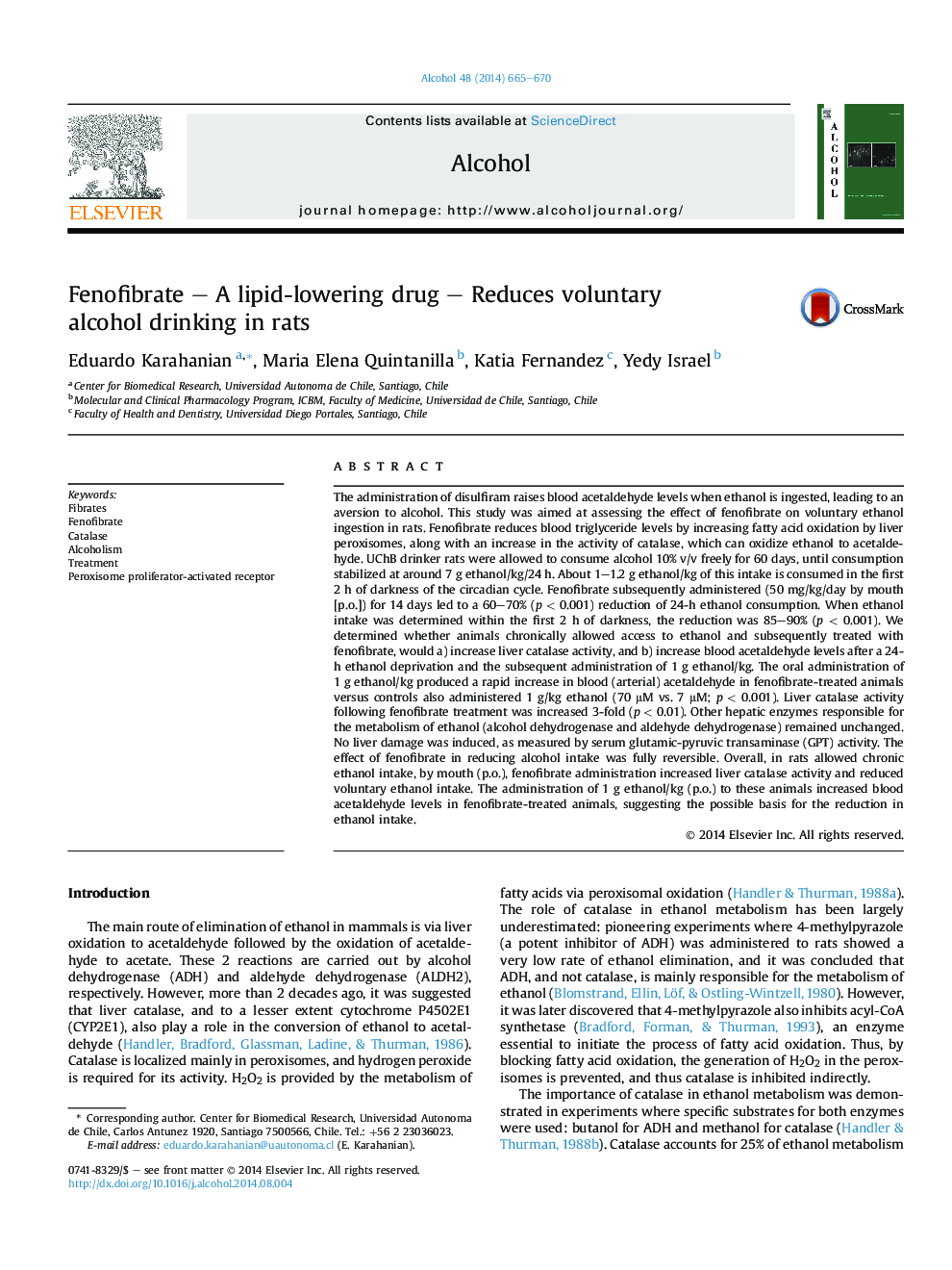| Article ID | Journal | Published Year | Pages | File Type |
|---|---|---|---|---|
| 10508926 | Alcohol | 2014 | 6 Pages |
Abstract
The administration of disulfiram raises blood acetaldehyde levels when ethanol is ingested, leading to an aversion to alcohol. This study was aimed at assessing the effect of fenofibrate on voluntary ethanol ingestion in rats. Fenofibrate reduces blood triglyceride levels by increasing fatty acid oxidation by liver peroxisomes, along with an increase in the activity of catalase, which can oxidize ethanol to acetaldehyde. UChB drinker rats were allowed to consume alcohol 10% v/v freely for 60 days, until consumption stabilized at around 7 g ethanol/kg/24 h. About 1-1.2 g ethanol/kg of this intake is consumed in the first 2 h of darkness of the circadian cycle. Fenofibrate subsequently administered (50 mg/kg/day by mouth [p.o.]) for 14 days led to a 60-70% (p < 0.001) reduction of 24-h ethanol consumption. When ethanol intake was determined within the first 2 h of darkness, the reduction was 85-90% (p < 0.001). We determined whether animals chronically allowed access to ethanol and subsequently treated with fenofibrate, would a) increase liver catalase activity, and b) increase blood acetaldehyde levels after a 24-h ethanol deprivation and the subsequent administration of 1 g ethanol/kg. The oral administration of 1 g ethanol/kg produced a rapid increase in blood (arterial) acetaldehyde in fenofibrate-treated animals versus controls also administered 1 g/kg ethanol (70 μM vs. 7 μM; p < 0.001). Liver catalase activity following fenofibrate treatment was increased 3-fold (p < 0.01). Other hepatic enzymes responsible for the metabolism of ethanol (alcohol dehydrogenase and aldehyde dehydrogenase) remained unchanged. No liver damage was induced, as measured by serum glutamic-pyruvic transaminase (GPT) activity. The effect of fenofibrate in reducing alcohol intake was fully reversible. Overall, in rats allowed chronic ethanol intake, by mouth (p.o.), fenofibrate administration increased liver catalase activity and reduced voluntary ethanol intake. The administration of 1 g ethanol/kg (p.o.) to these animals increased blood acetaldehyde levels in fenofibrate-treated animals, suggesting the possible basis for the reduction in ethanol intake.
Related Topics
Life Sciences
Biochemistry, Genetics and Molecular Biology
Biochemistry
Authors
Eduardo Karahanian, Maria Elena Quintanilla, Katia Fernandez, Yedy Israel,
